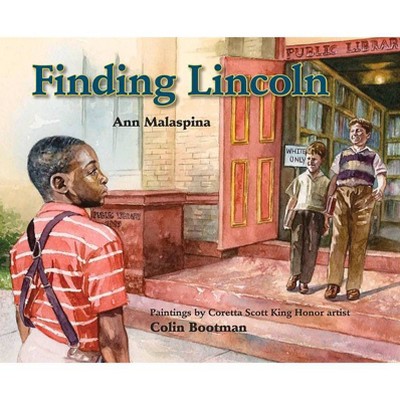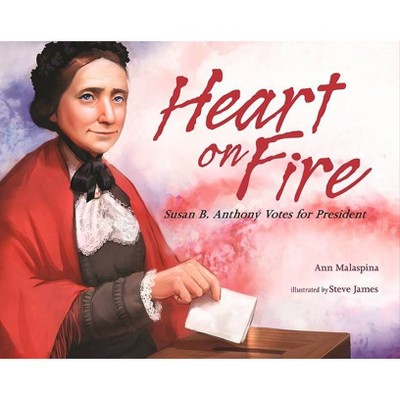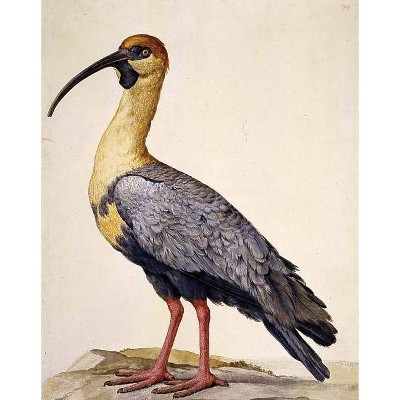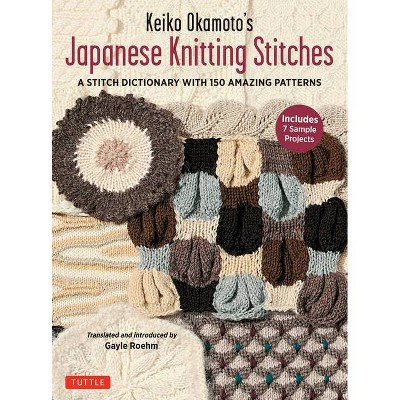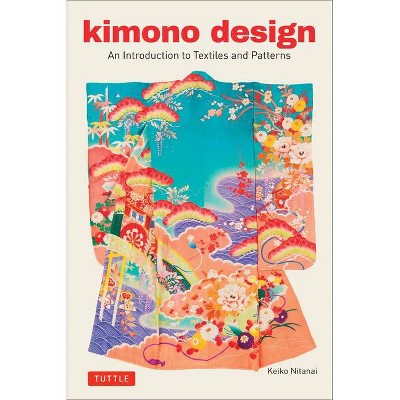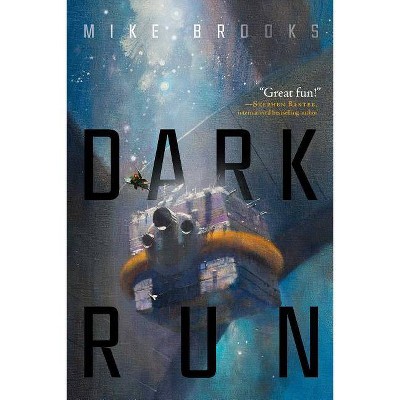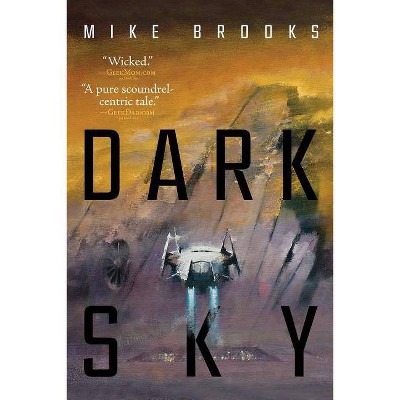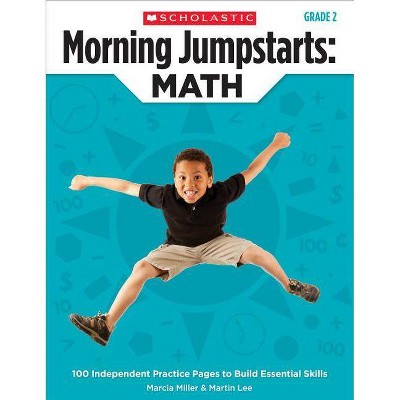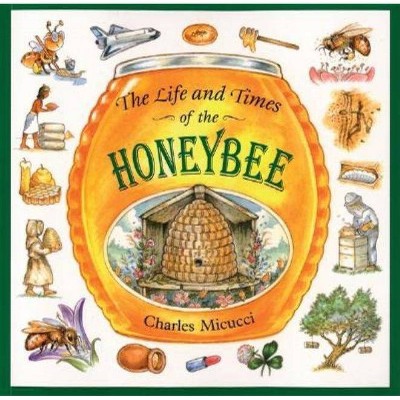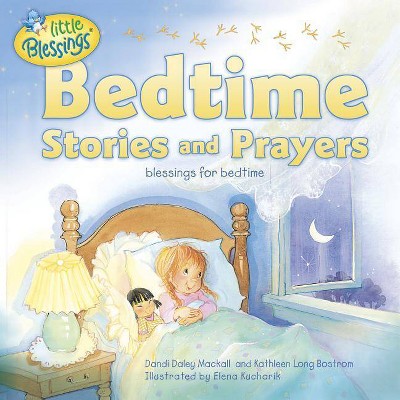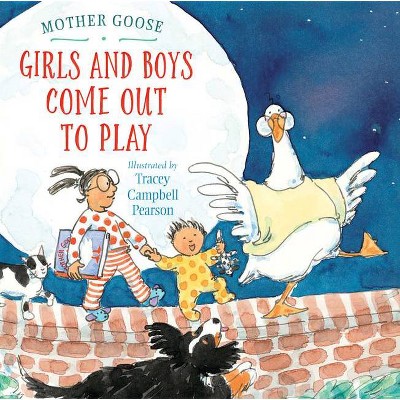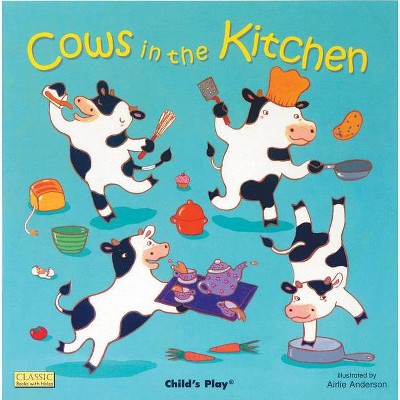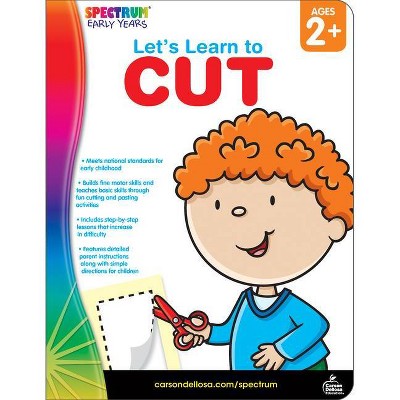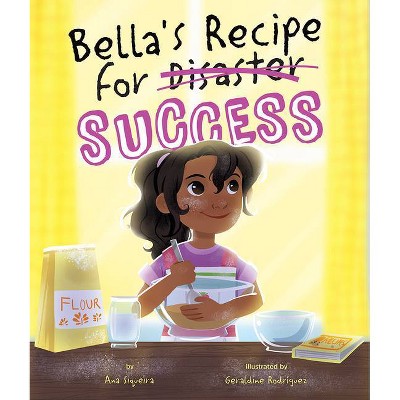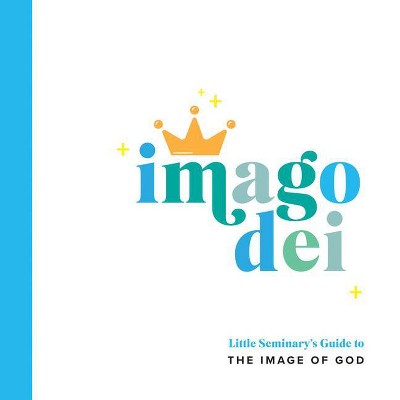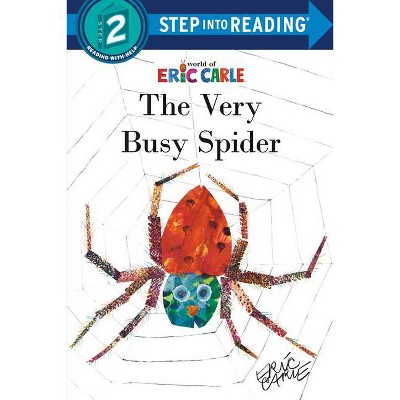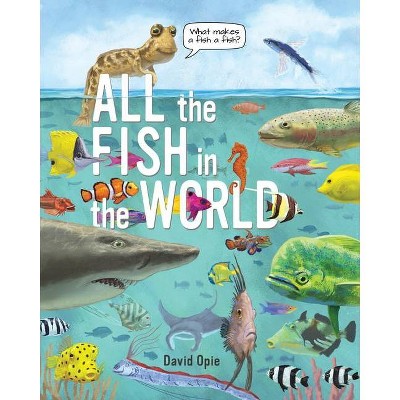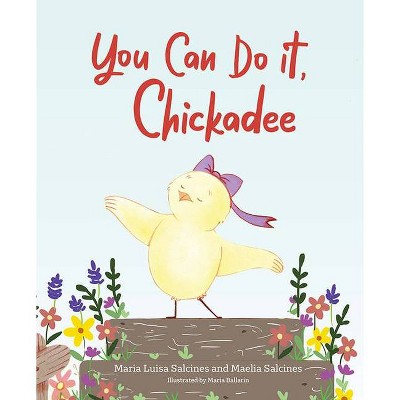A Scarf for Keiko - by Ann Malaspina (Paperback)
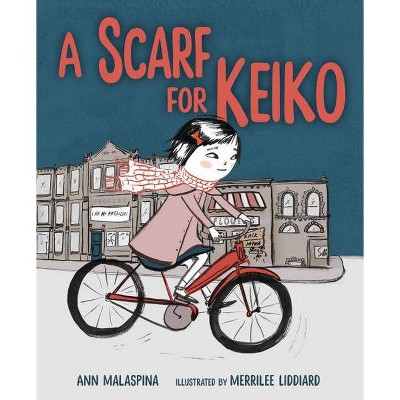
Similar Products
Products of same category from the store
AllProduct info
<p/><br></br><p><b> About the Book </b></p></br></br>In Little Tokyo, Los Angeles, in 1942, after Sam's Japanese neighbor, Keiko, is sent to an internment camp with her family, he makes a special effort to send her a gesture of friendship.<p/><br></br><p><b> Book Synopsis </b></p></br></br><p>It's 1942. Sam's class is knitting socks for soldiers and Sam is a terrible knitter. Keiko is a good knitter, but some kids at school don't want anything to do with her because the Japanese have bombed Pearl Harbor and her family is Japanese American. When Keiko's family is forced to move to a camp for Japanese Americans, can Sam find a way to demonstrate his friendship?</p><p/><br></br><p><b> Review Quotes </b></p></br></br><br><p>An act of kindness during World War II still resonates today as a boy reaches out to a girl whom the government does not consider a suitable or loyal American citizen. The United States has entered World War II and Sam's class in Los Angeles is knitting socks for soldiers. Unfortunately, Sam cannot get his knitting needles to work properly as he tries to knit for his older brother, who is fighting overseas. Frustrated, he rejects an offer of help from his neighbor and classmate, Keiko, a girl of Japanese descent. Keiko is taunted and her father's flower store is vandalized, and then the family is sent to an internment camp. Sam and his parents are sympathetic--as Jews they understand persecution--and his mother offers to keep safe Keiko's mother's treasured tea service. When Keiko leaves her bike with Sam, she includes knitted socks for Sam's brother. It is then--finally--that Sam comes up with a most neighborly gesture: He will knit a scarf for Keiko because desert nights can be cold. Carefully, stitch by stitch, he finishes his project. The illustrations, in browns, greys, and reds, focus on the faces of the characters and express their frustrations, fears, and concerns. The author's note briefly explains both President Roosevelt's 1942 Executive Order and the 1988 Civil Liberties Act. A gentle and accessible story of tolerance during a war overflowing with racial and ethnic intolerance.―<em>Kirkus Reviews</em></p>-- "Journal" (11/30/2018 12:00:00 AM)<br><br><p>In this WWII home front-set picture book, a boy's class is knitting socks for U.S. soldiers overseas, though Sam, the frustrated protagonist, is skilled only at tangling his wool into knots. Keiko, an expert knitter, is his classmate and neighbor; she's been ostracized 'since President Roosevelt had declared war on Japan in December.' Keiko repeatedly extends kindnesses to Sam, but he ignores her despite the fact that his older brother, Mike, off fighting in the war, was consistently friendly to her. Before Keiko's family is sent to an internment camp, she leaves Sam a note, her bike, and a pair of hand-knitted socks for Sam to send<br /> to Mike, with a note telling Mike to 'come home safely.' With a shift to a slower narrative pace--and with Malaspina's text mimicking the rhythm of the knitting needles ('Click. Clack. Click. Clack')--Sam determinedly makes a scarf to mail to Keiko, the phrase come home safely taking on a new meaning for him. Many of the<br /> illustrations, rendered in cool browns, grays, and blues, are framed by a border, making the art look like vintage photographs, an apt choice for this work of historical fiction. Appended with an author's note about Los Angeles's Boyle Heights and Little Tokyo neighborhoods ('where Jews and Japanese Americans lived side<br /> by side and attended schools together in the early decades of the 20th Century'); photos from the time period; and information about internment camps, including the U.S. government's later acknowledgment of the 'grave injustice' of the camps.―<em>The Horn Book Magazine</em><br /> </p>-- "Journal" (5/1/2019 12:00:00 AM)<br><br><p>It's 1942 and America is at war with the Empire of Japan. Sam's elementary school class is knitting socks for soldiers and Sam is a terrible knitter. Keiko is a good knitter, but some kids at school don't want anything to do with her because the Japanese have bombed Pearl Harbor and her family is Japanese American. When Keiko's family is forced to move to a camp for Japanese Americans, can Sam find a way to demonstrate his friendship? A deftly crafted picture book for children ages 5-10 drawing upon one of America's most egregious examples of racial discrimination in a time of war, 'A Scarf for Keido' is unreservedly recommended for its ultimately inspiring message of overcoming that discrimination. Of special note is the Author's Note on the subject of what happened to Japanese Americans in World War II. While very highly and unreservedly recommended for family, elementary school, and community library picture book collections, it should be noted for personal reading lists that 'A Scarf for Keiko' is also available in a paperback edition (9781541521650, $7.99) and in a digital book format (Kindle, $7.59).―<em>Midwest Book Review</em></p>-- "Website" (4/1/2019 12:00:00 AM)<br><br><p>It's 1942 in Los Angeles and Sam's older brother, Mike, is fighting in the war. Sam and his classmates are knitting socks for soldiers, but Sam is a terrible knitter. However, his Japanese American neighbor, Keiko, can easily produce a perfect pair of socks. Keiko is in Sam's class and lives in his neighborhood, and she is being mistreated everywhere because she is Japanese. His classmates are encouraging Jack to ignore her too. Jack remembers that Mike liked Keiko, and his Jewish parents are sympathetic to Keiko and her family when they realize Japanese people will be sent to live in camps due to suspicion that they may be spies. Jack gives up on knitting and writes Mike an apology for not being able to send him some socks. Keiko drops out of school and her family packs up to leave, but not before they entrust their family tea set to Jack's family and Keiko knits a pair of socks for Mike, which she leaves (along with her bicycle) for Jack. Keiko's acts of kindness, in spite of the racial and ethnic intolerance she faces, strikes a chord with Jack, and he responds by knitting a simple scarf to send to Keiko because he thinks she is facing an uncomfortable winter in the desert. Merrilee Liddiard provides simple illustrations done in sepia tones and muted blues that provide specific period details to support the book's historical setting. A two-page Author's Note with photographs and straightforward information about the national atmosphere that resulted in the political and social oppression of Japanese Americans at the time resonates with today's immigration crisis. This is a title that will help students make connections and come to their own ethical conclusions. Recommended―<em>School Library Connection</em></p>-- "Journal" (8/15/2019 12:00:00 AM)<br><br><p>Sam is struggling to knit. His classmates are making warm things for the soldiers fighting overseas in WWII, Sam's brother Mike among them. Meanwhile, Japanese families in the boy's California neighborhood are being persecuted because they're suspected of ties to the enemy. Other classmates shun his Japanese classmate, Keiko, and though Sam remembers that Mike was kind to her, Sam still retreats into excuses ('I didn't talk to her, ' he tells a classmate. 'She talked to me'). When Sam hears that Keiko and her family are being sent to an internment camp, learning how to knit suddenly assumes new importance: 'The desert where Keiko was going would be cold at night.' Malaspina (<em>Heart on Fire: Susan B. Anthony Votes for President</em>) tells her story with care as Sam's Jewish family, themselves a marginalized group, discuss what the war is doing to their family and friends the world over: 'They're good Americans, and the best neighbors, ' Sam's mother says about Keiko's family. Illustrations by Liddiard <em>(Playful: Fun Projects to Make With + For Kids</em>) in muted blues and sepias recreate period details such as Sam's pressed wool trousers. A rich source for discussion, both about outward political oppression and the inward struggle to behave honorably amid it. --<em>Publishers Weekly</em></p>-- "Journal" (12/21/2019 12:00:00 AM)<br>
Price History
Cheapest price in the interval: 7.79 on November 6, 2021
Most expensive price in the interval: 7.79 on December 20, 2021
Price Archive shows prices from various stores, lets you see history and find the cheapest. There is no actual sale on the website. For all support, inquiry and suggestion messagescommunication@pricearchive.us
